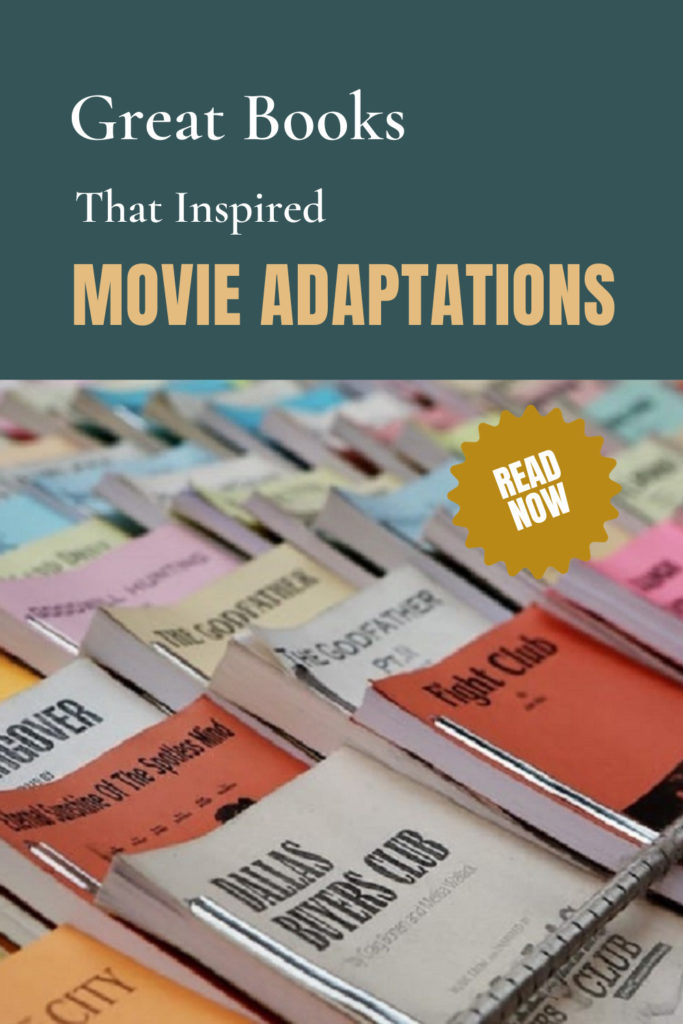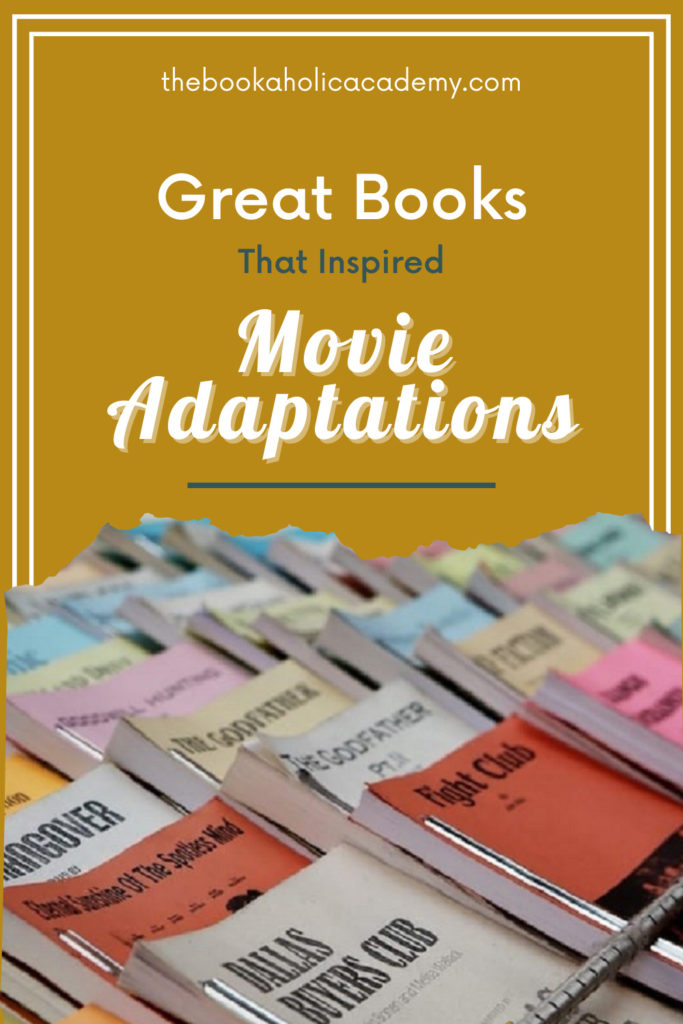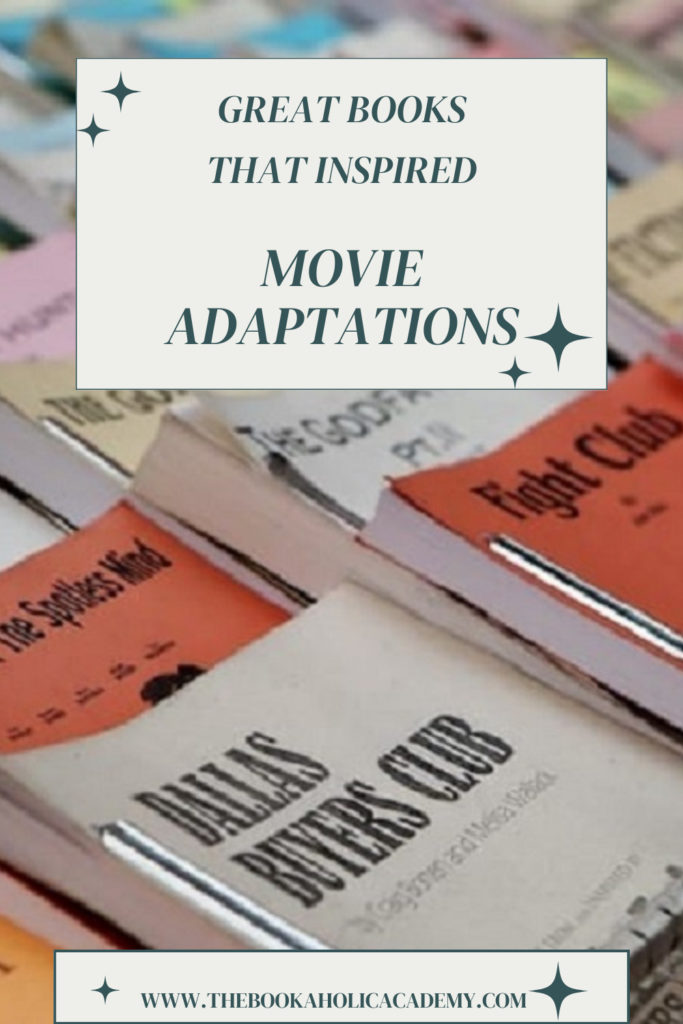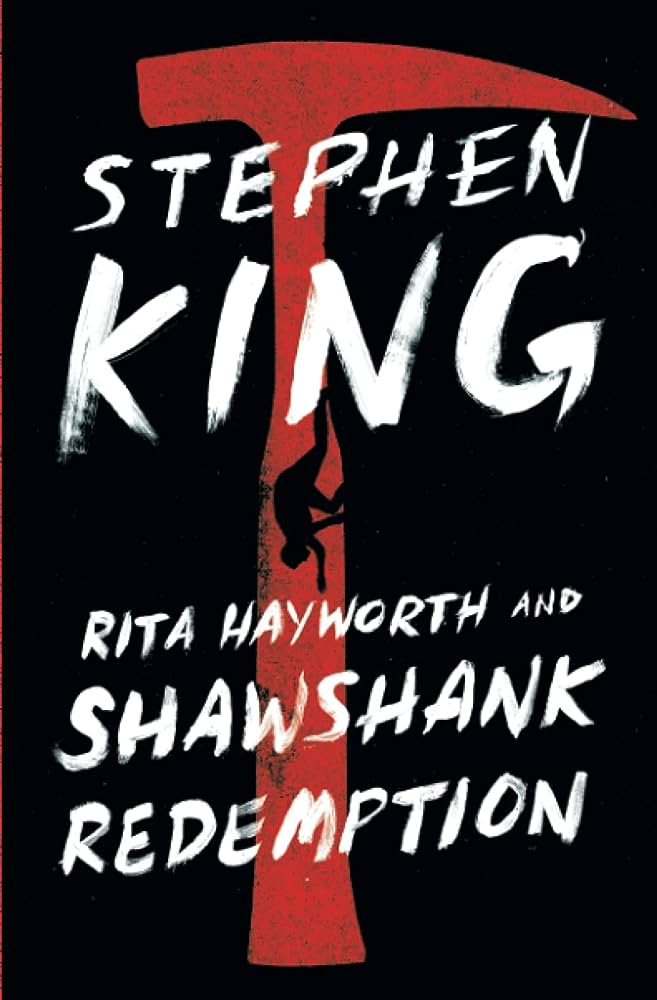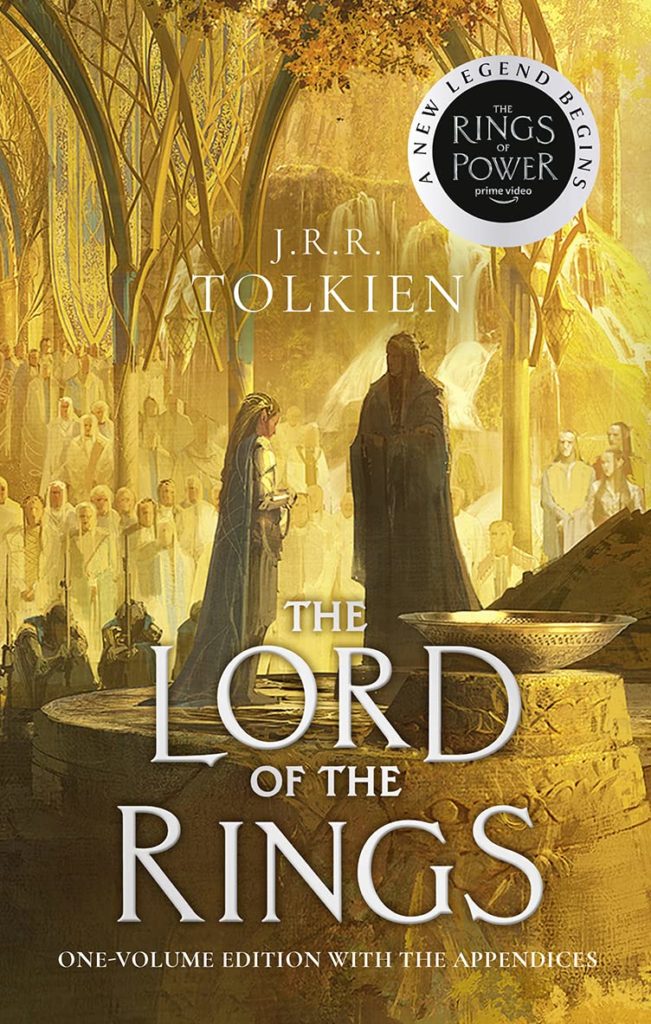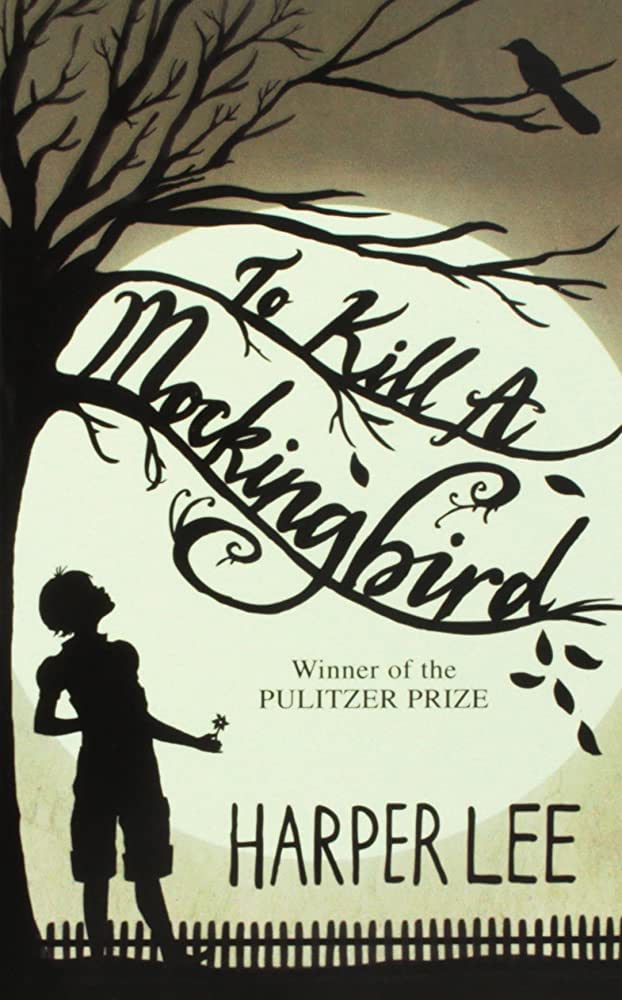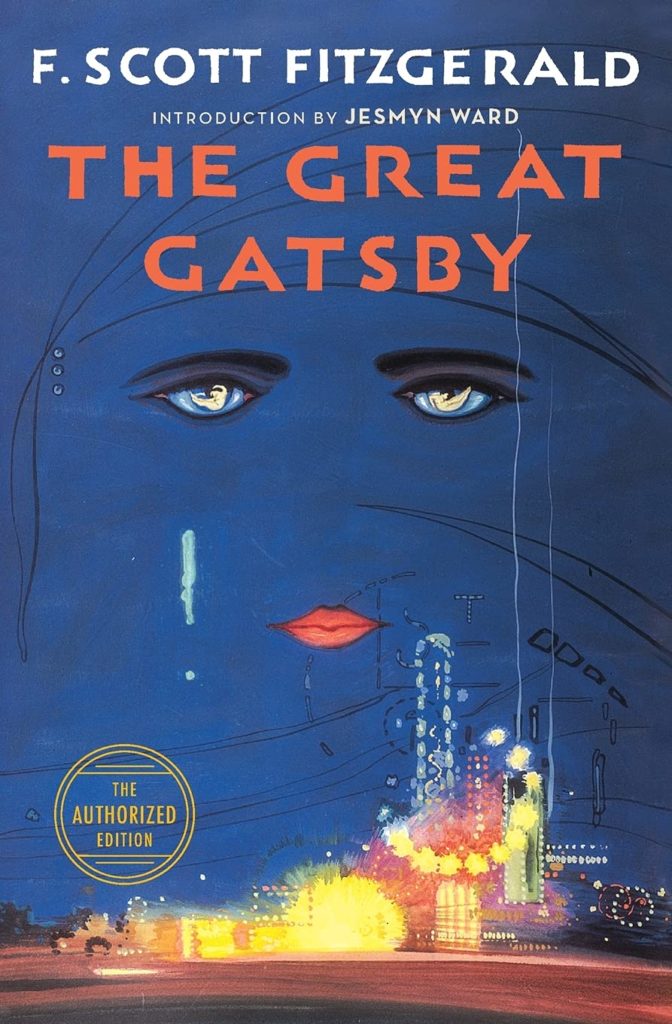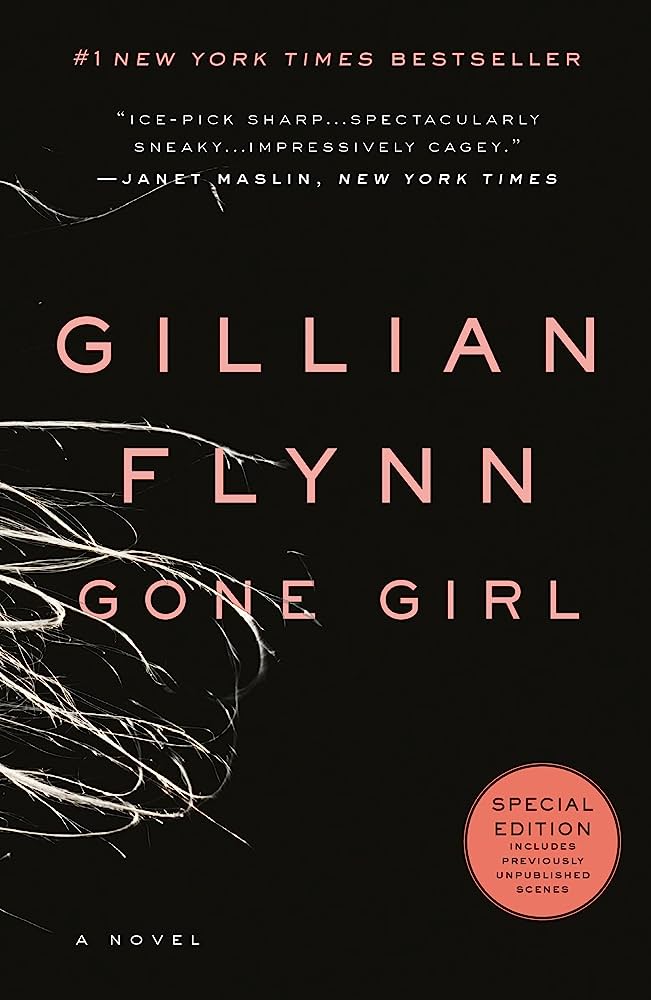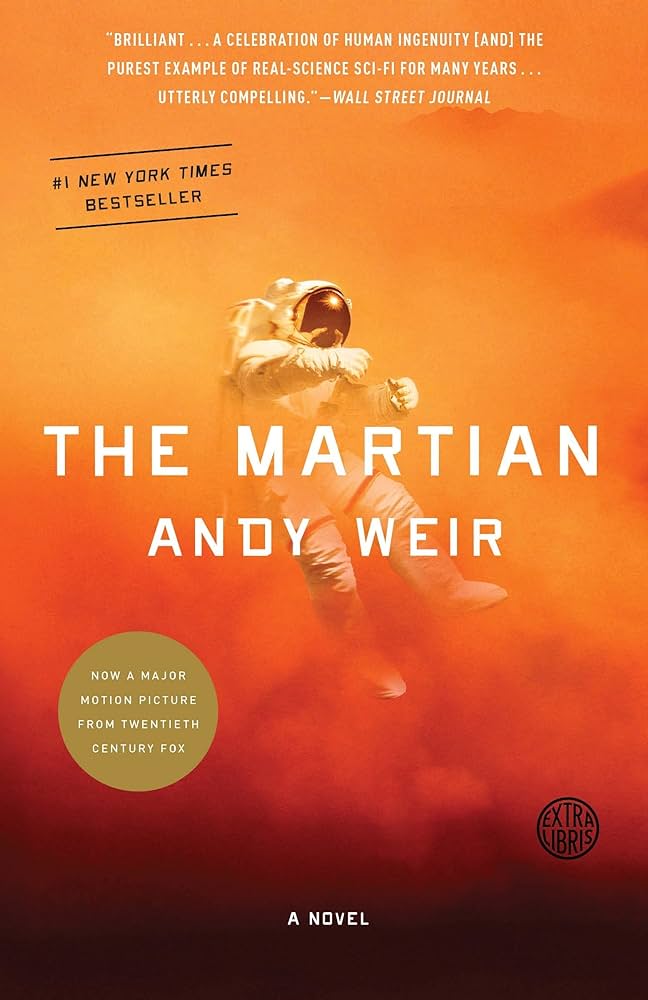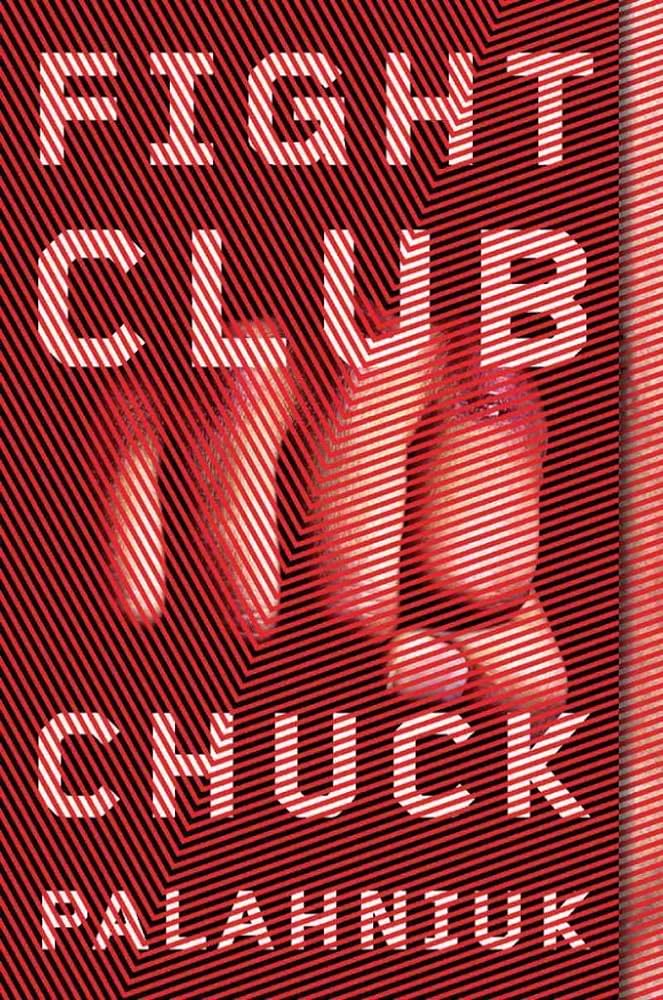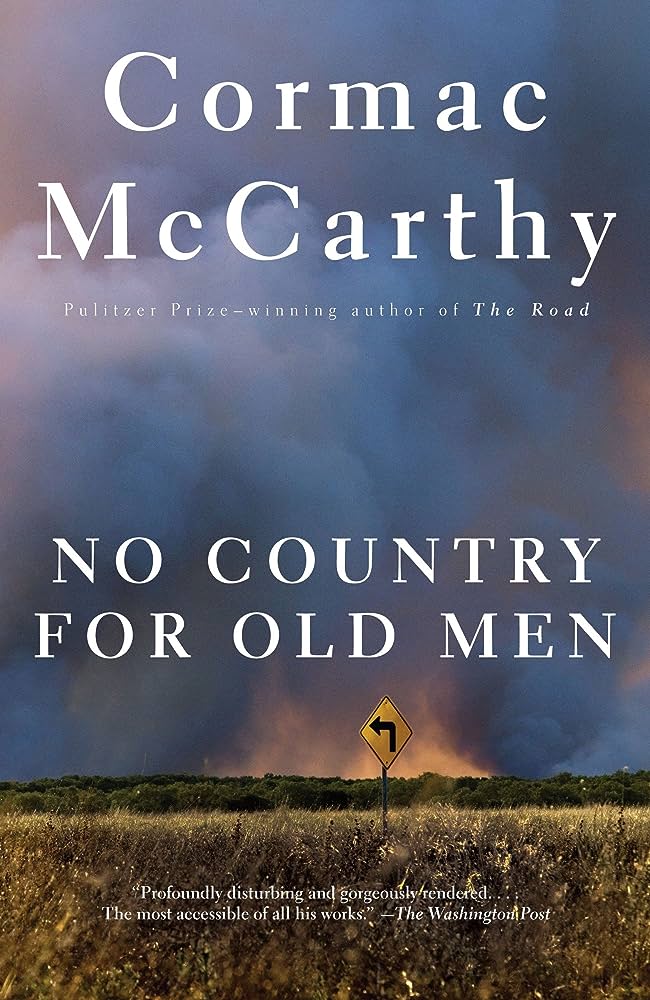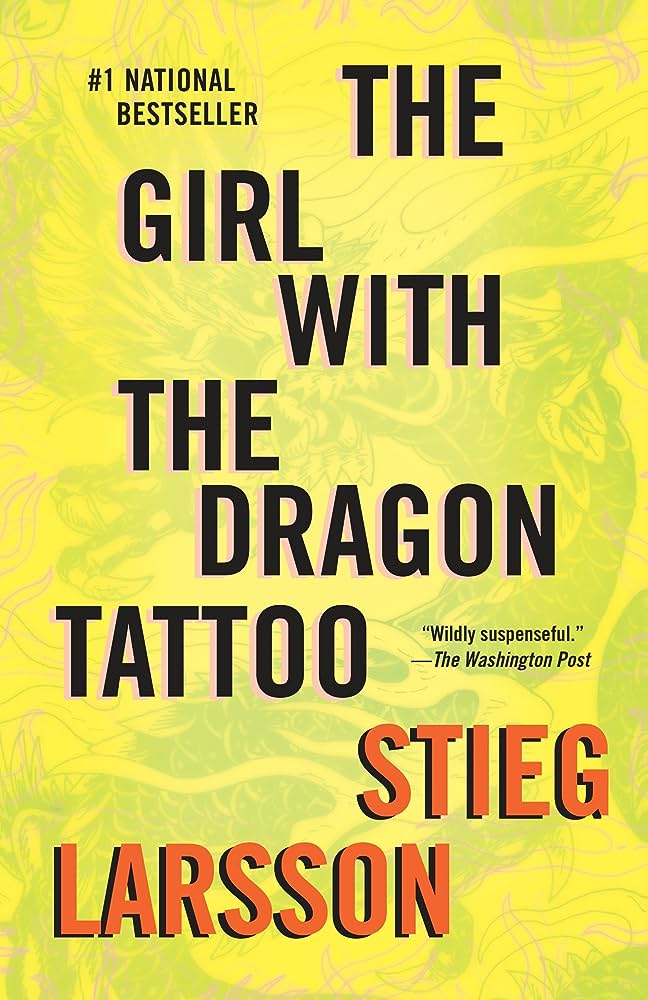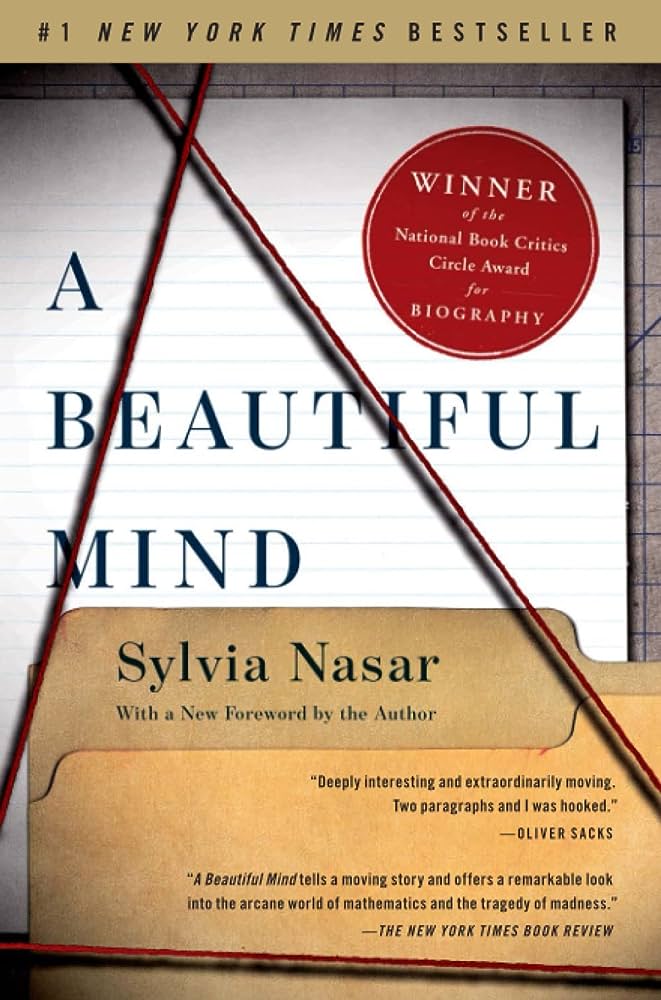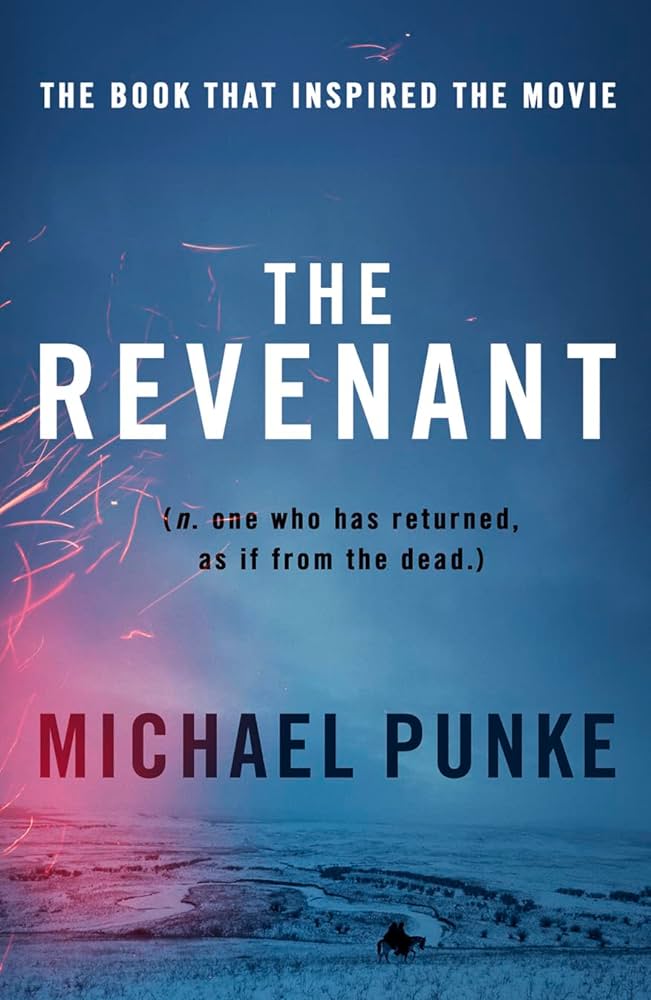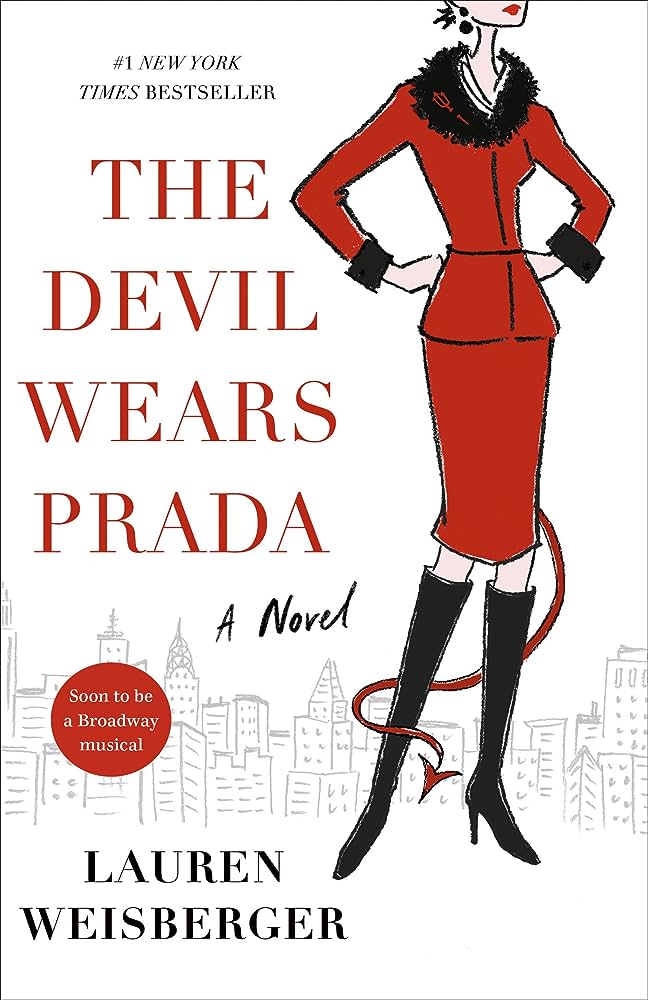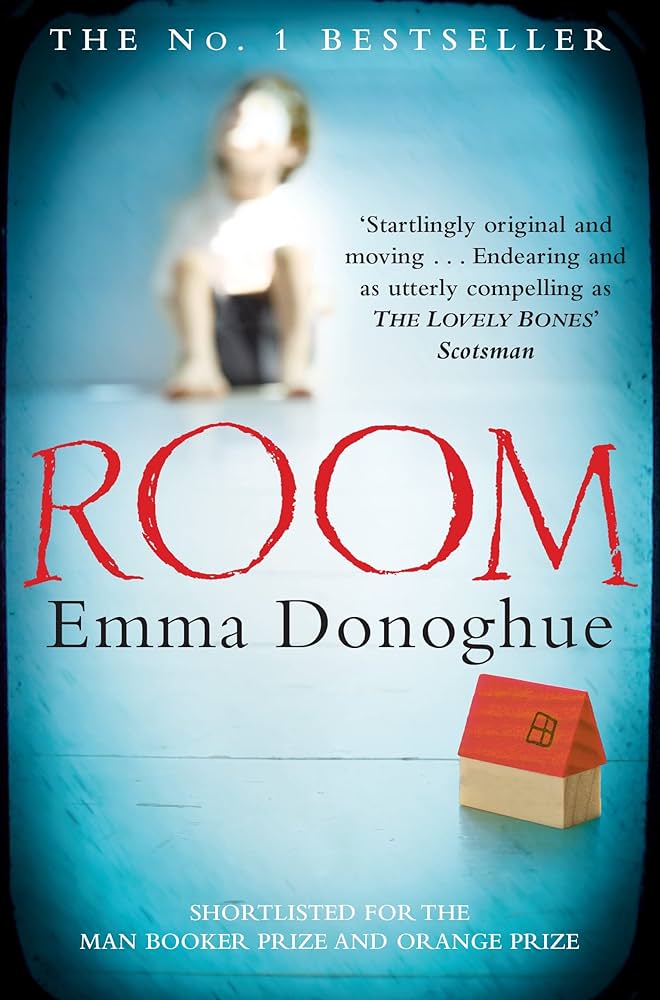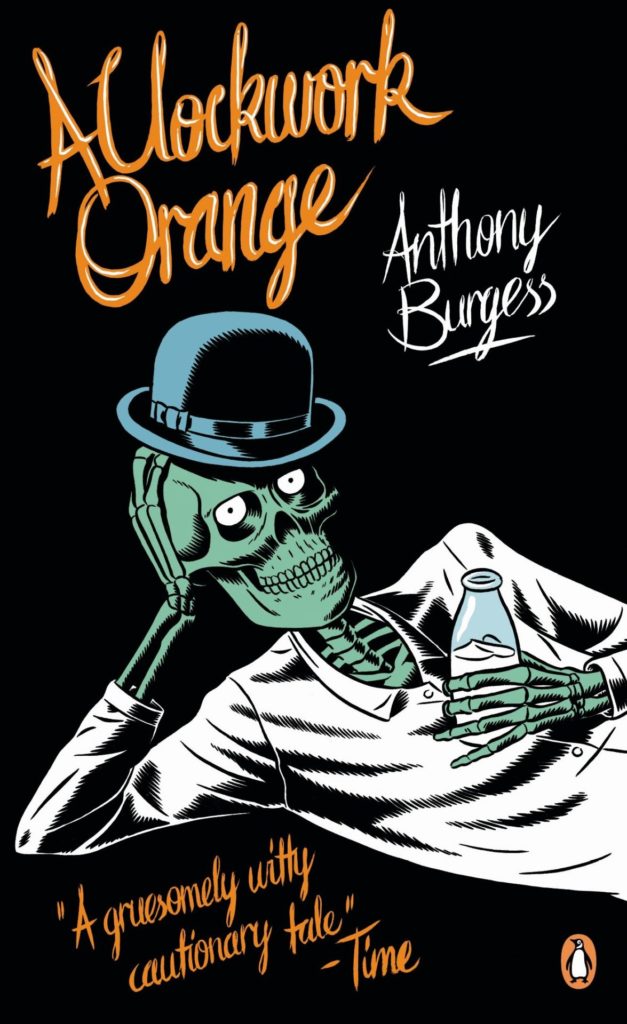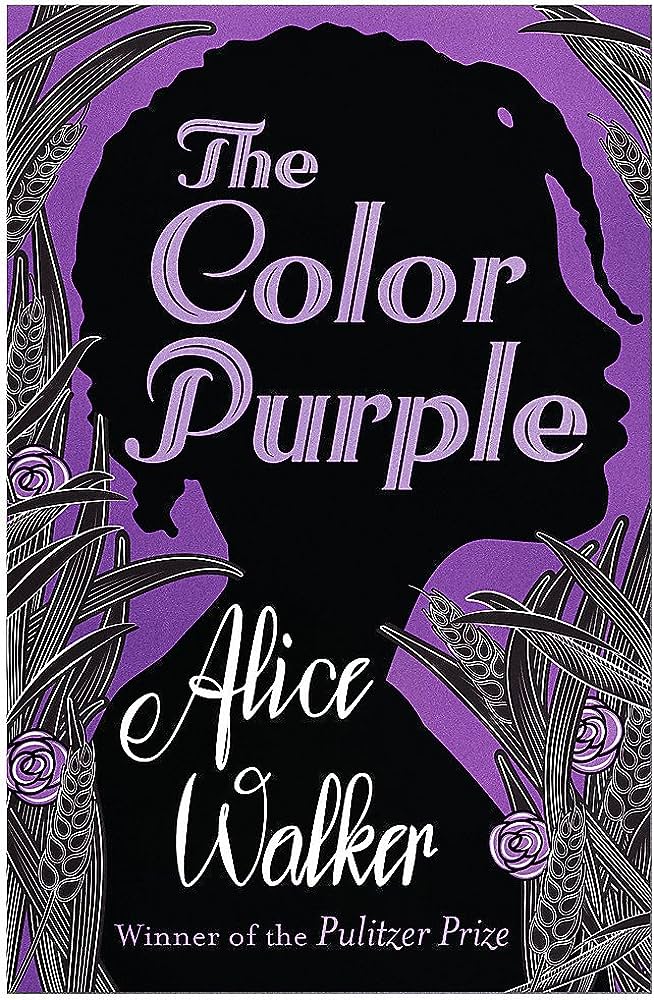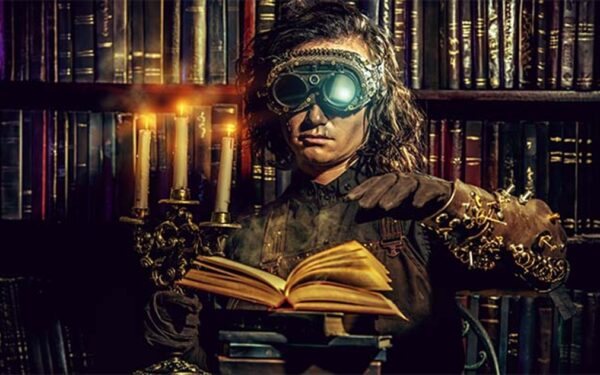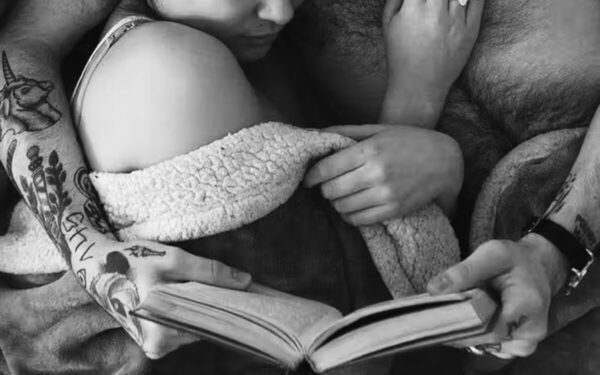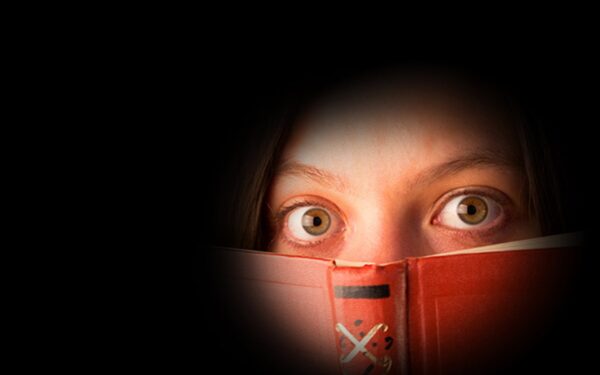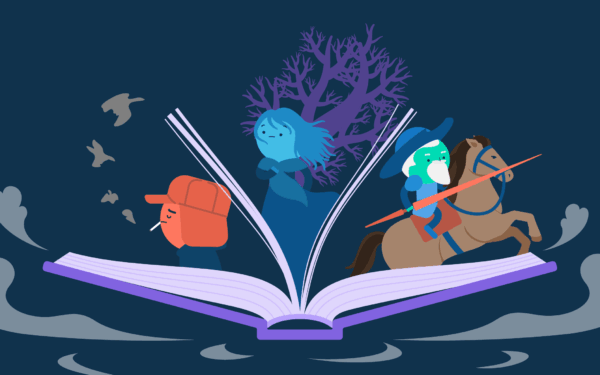Great Books That Inspired Movie Adaptations – Part 1
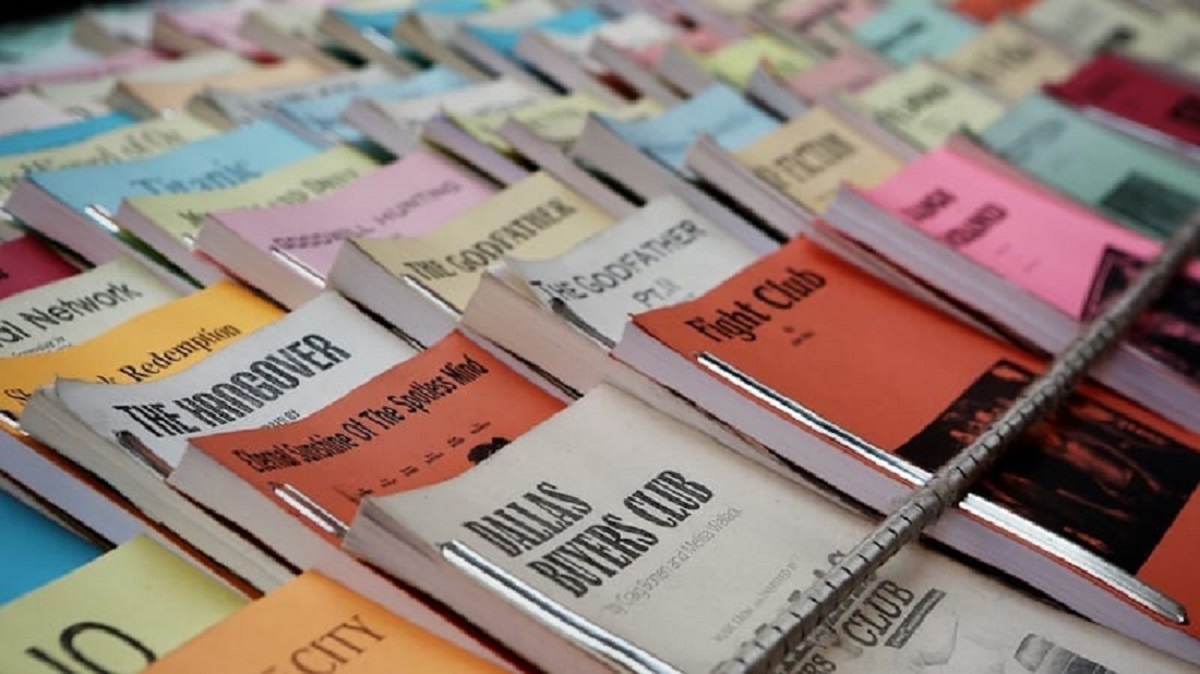
Disclaimer
This post may contain affiliate links. I will make a small commission if you make a purchase through one of these links, at no extra cost to you. See full disclosure and disclaimer policy HERE.
In the world of entertainment, the symbiotic relationship between literature and cinema is a captivating dance. Books have always been a wellspring of inspiration for filmmakers, offering rich narratives, complex characters, and thought-provoking themes. When these stories make the leap from the printed page to the silver screen, magic often happens. In this article, we’ll explore some iconic books that inspired unforgettable movie adaptations.
Table of Contents
- Great Books That Inspired Movie Adaptations
- The Shawshank Redemption by Stephen King
- The Lord of the Rings by J.R.R. Tolkien
- To Kill a Mockingbird by Harper Lee
- The Great Gatsby by F. Scott Fitzgerald
- Gone Girl by Gillian Flynn
- The Martian by Andy Weir
- Fight Club by Chuck Palahniuk
- No Country for Old Men by Cormac McCarthy
- The Girl With The Dragon Tattoo by Stieg Larsson
- A Beautiful Mind by Sylvia Nasar
- The Revenant by Michael Punke
- The Devil Wears Prada by Lauren Weisberger
- Room by Emma Donoghue
- A Clockwork Orange by Anthony Burgess
- The Color Purple by Alice Walker
- Conclusion
- FAQs
Great Books That Inspired Movie Adaptations
The Shawshank Redemption by Stephen King
Few would expect a prison drama to be the stuff of cinematic legend, but The Shawshank Redemption defies expectations. Based on Stephen King’s novella “Rita Hayworth and Shawshank Redemption,” this film, directed by Frank Darabont, is a masterclass in storytelling.
It reminds us that hope can thrive even in the darkest of places. With Morgan Freeman’s compelling narration and Tim Robbins’ remarkable performance, this adaptation stands as a testament to the power of transformation and friendship.
RELATED:
Why You Should Read Stephen King: His Best Novels
The Lord of the Rings by J.R.R. Tolkien
J.R.R. Tolkien’s epic fantasy series, The Lord of the Rings, had already captured the hearts of millions through its books. However, it was Peter Jackson’s film adaptation that transported Middle-earth into the hearts of viewers worldwide.
The trilogy, comprising “The Fellowship of the Ring,” “The Two Towers,” and “The Return of the King,” was a colossal cinematic achievement. It demonstrated how intricate world-building, breath-taking landscapes, and memorable characters can be seamlessly translated to the big screen.
To Kill a Mockingbird by Harper Lee
Harper Lee’s Pulitzer Prize-winning novel, To Kill a Mockingbird, is a timeless exploration of racial injustice and moral growth. The film adaptation, directed by Robert Mulligan, brought these themes to life with Gregory Peck’s iconic portrayal of Atticus Finch. It continues to serve as a poignant reminder of the importance of empathy and the fight against prejudice.
RELATED:
Review: To Kill A Mockingbird by Harper Lee
The Great Gatsby by F. Scott Fitzgerald
F. Scott Fitzgerald’s The Great Gatsby is a classic depiction of the extravagant yet disillusioned Roaring Twenties. Baz Luhrmann’s 2013 adaptation, starring Leonardo DiCaprio as Jay Gatsby, transformed the book into a visually stunning, modern masterpiece. It encapsulated the era’s glamour and excess while staying true to the novel’s themes of ambition and the American Dream.
RELATED:
Review: The Great Gatsby by F. Scott Fitzgerald
Gone Girl by Gillian Flynn
Gillian Flynn’s best-selling thriller takes readers on a rollercoaster ride of suspense and psychological intrigue. David Fincher’s film adaptation, starring Ben Affleck and Rosamund Pike, maintains the novel’s dark, twisted narrative. It keeps viewers guessing until the shocking conclusion, exploring themes of marriage and deception.
The Martian by Andy Weir
Weir’s novel combines science and survival on the hostile terrain of Mars. Ridley Scott’s film adaptation, starring Matt Damon as astronaut Mark Watney, impressively balances scientific accuracy with gripping storytelling. It showcases the power of human ingenuity and determination in the face of adversity.
Fight Club by Chuck Palahniuk
Palahniuk’s novel delves into the disillusionment of modern life through an underground fight club. David Fincher’s adaptation, starring Edward Norton and Brad Pitt, captures the novel’s subversive spirit. The film’s thought-provoking commentary on consumerism and masculinity has sparked intense discussions.
No Country for Old Men by Cormac McCarthy
McCarthy’s novel weaves a gritty tale of crime and moral ambiguity in the Texas desert. The Coen Brothers’ adaptation, featuring Javier Bardem as the enigmatic hitman Anton Chigurh, is a masterclass in tension and suspense. It explores themes of fate and the changing nature of crime.
RELATED:
Why You Should Read Cormac McCarthy: His Best Novels
The Girl With The Dragon Tattoo by Stieg Larsson
Larsson’s novel introduces readers to the complex character of Lisbeth Salander, a brilliant hacker with a dark past. Both the Swedish and American adaptations bring this character to life, with Rooney Mara and Noomi Rapace delivering captivating performances. The films delve into the dark underbelly of society, exposing corruption and abuse.
A Beautiful Mind by Sylvia Nasar
Nasar’s biography explores the life of mathematician John Nash, who grappled with schizophrenia while making ground-breaking contributions to his field. Ron Howard’s film adaptation, starring Russell Crowe, skilfully portrays Nash’s journey, earning critical acclaim and several Oscars, including Best Picture.
The Revenant by Michael Punke
Punke’s novel is a harrowing tale of survival and revenge in the wilderness of 19th-century America. Alejandro González Iñárritu’s film adaptation, starring Leonardo DiCaprio as frontiersman Hugh Glass, immerses viewers in a visceral and visually stunning experience. The film’s realism and intensity are unforgettable.
The Devil Wears Prada by Lauren Weisberger
Weisberger’s novel offers a satirical glimpse into the cutthroat world of high fashion through the eyes of aspiring journalist Andrea Sachs. The film adaptation, with Meryl Streep as the formidable Miranda Priestly, captures the glamour and ruthlessness of the fashion industry. It also explores themes of ambition and self-discovery.
Room by Emma Donoghue
Donoghue’s novel is a gripping exploration of captivity and resilience, narrated from the perspective of a young boy held captive in a small room with his mother. The film adaptation, starring Brie Larson, delves into the emotional complexities of their relationship and their journey to freedom. Larson’s performance earned her an Academy Award.
A Clockwork Orange by Anthony Burgess
Stanley Kubrick’s adaptation of Burgess’ dystopian novel is a provocative exploration of the dark side of human nature. The film, like the book, raises profound questions about free will, morality, and the consequences of societal control.
RELATED:
Review: The Morally Complex A Clockwork Orange by Anthony Burgess
The Color Purple by Alice Walker
Spielberg’s adaptation is a moving portrayal of Celie’s journey from oppression to self-discovery. Whoopi Goldberg and Oprah Winfrey deliver powerful performances, bringing the novel’s themes of racism, sexism, and resilience to life.
RELATED:
Review: The Perplexity of The Color Purple by Alice Walker
Conclusion
Books that inspire movie adaptations are bridges between two forms of storytelling, each with its unique charm. These adaptations continue to resonate with audiences, reminding us of the power of storytelling in all its forms.
FAQs
Did you like it? Pin this post for later!
